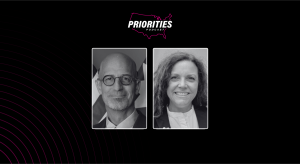New York City libraries to lend free Wi-Fi hotspot devices
New York City has partnered with Google on a new program that lends Wi-Fi hotspot devices to New Yorkers to use at home. The program is aimed at giving families, many lacking broadband access, the opportunity to borrow free Wi-Fi devices from their local libraries to access the Internet.
The New York Public Library successfully piloted the program over the summer, when families at four branches in the Bronx and Staten Island were able to borrow devices for months at a time.
“Whether you’re a parent looking for a job, a child working on a school project, or a family looking for information on services, broadband access is no longer a luxury – it’s a necessity.” said New York Mayor Bill de Blasio in a statement. “I commend both New York City Libraries and Google for their commitment to increasing accessibility to technology through the innovative Library Hotspot program, and I am thrilled to see thousands of New York City families get access to the internet.”
Funding for the project comes from a $1 million donation from Google and a $500,000 grant from the Knight News Challenge, an initiative of the John S. and James L. Knight Foundation, Open Society Foundations, and Robin Hood Foundation.
This money will allow the program to expand this fall to three library systems, including Brooklyn Public Library and Queens Library. The goal is to offer about 10,000 families Wi-Fi devices powered by Sprint, in a move to help to close the digital divide in New York City.
“Far too many New Yorkers do not have regular access to the Internet, and as a result find themselves excluded from a wealth of education, employment, and community resources,” said Ben Fried, Google Inc.’s chief information officer, in the release. “This innovative program to loan hotspots to low-income households is a simple, effective way to help those who need broadband and technology the most.”
The program came about after a survey of patrons revealed that 55 percent of those utilizing free Internet and computers in its branches did not have broadband access at home. When household income dropped to under $25,000, about 65 percent reported having no access. Those findings are also reflected in a recent U.S. Census report on Internet, which found poorer regions and neighborhoods tended to have less access to Internet service.
In addition to funding for Wi-Fi devices in New York City, Google’s donation will also provide the city’s library systems with 500 Google Chromebooks, which will be distributed based on need to children and teens enrolled in library after-school programs.
It appears the program could have legs in underserved technology areas around the country as well. As part of the program, some of the Wi-Fi devices will be distributed to support similar pilot programs in libraries in Maine and Kansas.
“With this innovative program, the City of New York is demonstrating that bridging the digital gap requires more than just providing Internet access in public schools and libraries,” said Andrew Rasiej, chairman of NY Tech Meetup, in the release. “It means giving students and underserved communities 24 hour access to all the world’s information resources necessary to succeed in today’s hyper connected global economy.”






